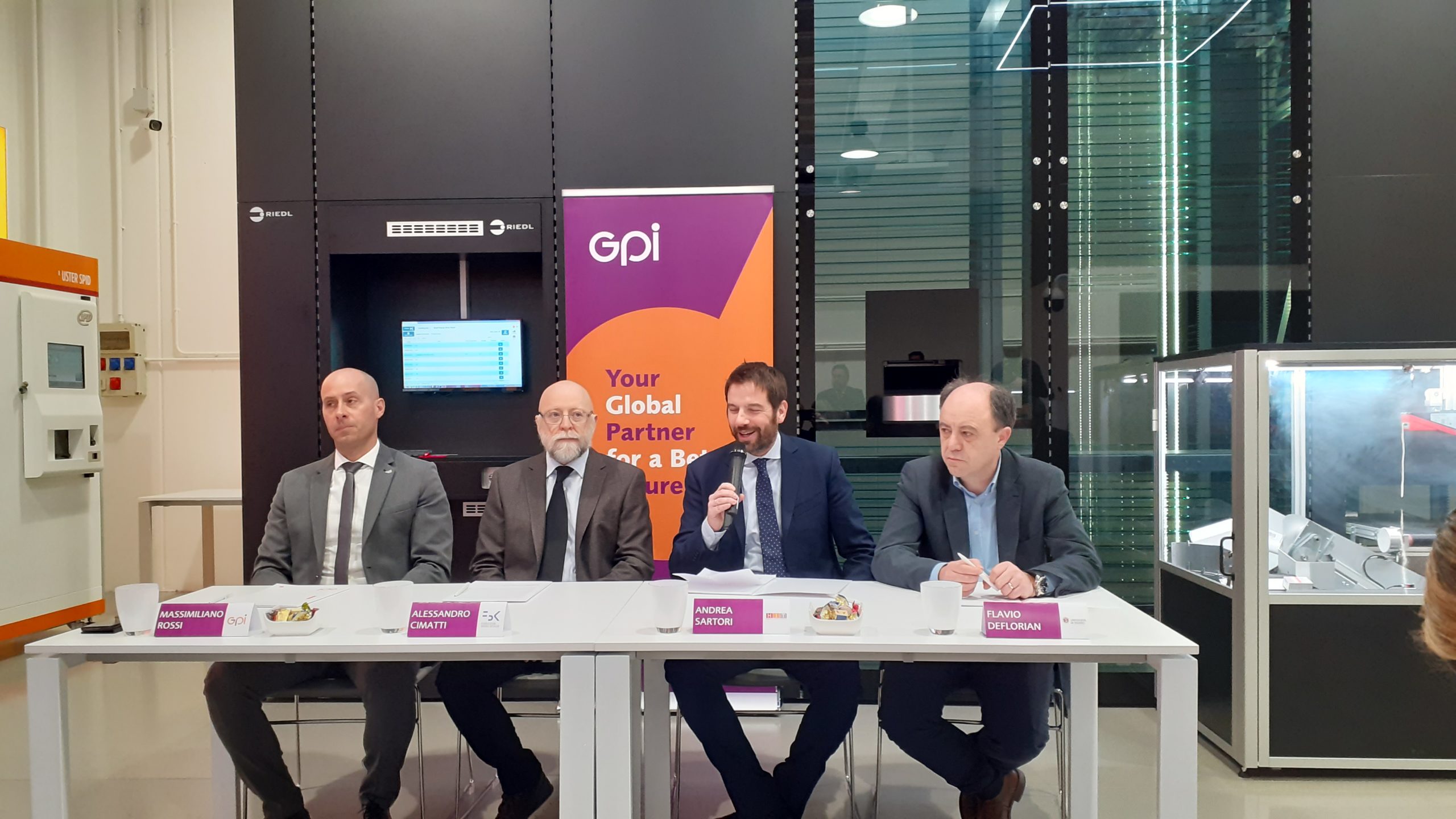RESEARCH AND BUSINESS COME TOGETHER TO CONQUER THE MARKETS

GPI signs a collaboration agreement with the Trentino area scientific research system to improve one of its flagship products, the Riedl Phasys robotic cabinet, used for drug logistics in hospitals and retail pharmacies around the world. The University of Trento, FBK and HIT have taken on the challenge: for a period of about 20 months, they are committed to developing a technological solution aimed at process acceleration, addressing a growing market demand.
GPI/UniTN/FBK/HIT press release
The initiative is part of the technology transfer sector, where research centres provide businesses with their research results, thus increasing their competitiveness. For years, the GPI Automation division has been producing a special system used by hospitals to robotically organise drug logistics. There are currently around 200 GPI-installed Riedl Phasys systems in the world (Europe, America, China, Middle East), whilst another 200 have been installed by partners that construct their specific product by assembling components supplied by GPI. A key feature is the speed and precision of the “gripper”, moving at 5 metres per second.
What is the goal of this new partnership? This doesn’t involve the core technology of the Riedl Phasys warehouse, but rather is about intervening in the loading step (refilling all the “drawers” of the robotic cabinet). In fact, the unloading performance (selective delivery of the drug) is already at the highest level, but the preliminary step can still improve some features, albeit in line with what competitors offer. A robot currently available can load, in complete autonomy, about 200 pieces per hour, often forcing the operator to resort to manual loading (much faster, but operator-dependent). Therefore, a faster system is needed, able to handle all kinds of packages (including cylindrical ones) and to work in smaller spaces than the current automatic loading system. All this whilst keeping costs down.
Worldwide, GPI has about ten competitors in this particular sector, all facing the same problem. The contract that GPI has signed with the University of Trento, FBK and HIT will last 20 months, with a GPI investment of approximately EUR 400,000. The search is on for a new technology that can greatly accelerate the competitive ability of the Riedl system at a global level.
“The market is asking us to evolve technologically”, notes Massimiliano Rossi, director of GPI’s Asa Automation, “whilst remaining attentive to costs. The need is to provide more autonomy to these logistics systems, so that healthcare workers have more time to devote to more important activities, namely the care of patients and customers. We have chosen to collaborate with the University of Trento, FBK and HIT, confident that high value synergies can emerge from our territory. Fundamental to this process is the role held by Fernando Guarino, someone who has been operating in the meeting ground between university, research and business for years”.
Alessandro Cimatti, head of the research unit in Embedded systems at FBK, points out: “FBK welcomes the support of GPI in this challenge with great satisfaction. The results of our research will be enhanced by their transfer into the field and, at the same time, the experience will suggest new research directions in a virtuous and synergistic context. Another factor of great importance is being able to work with local companies toward a common goal of excellence”.
“The competitive advantage achieved for businesses on an international level is due also to the contribution of the research world”, states Flavio Deflorian, Vice Rector of the University of Trento. “With the collaboration network initiated and coordinated by HIT among the companies and research institutions in the territory, we have laid the foundations in Trentino for developing an efficient technology transfer channel with a long-term competitive horizon. The project with GPI is a further example of how interactions of great value and impact between research and industrial innovation can result in a benefit for all the actors involved. The University of Trento, on this occasion, has demonstrated its clear willingness to partner with businesses in addressing technological challenges”.
“The collaboration between GPI and the world of Trentino research,” states Andrea Sartori, executive manager of HIT, “arose from HIT’s continuous scouting in the territory, aimed at promoting the meeting between the need for companies to include new technologies in their production processes and the most advanced solutions developed by the University and research centres. HIT is investing heavily in these functions, with more site visits and assessments of Trentino companies in the context of the Digital Innovation Hub”.